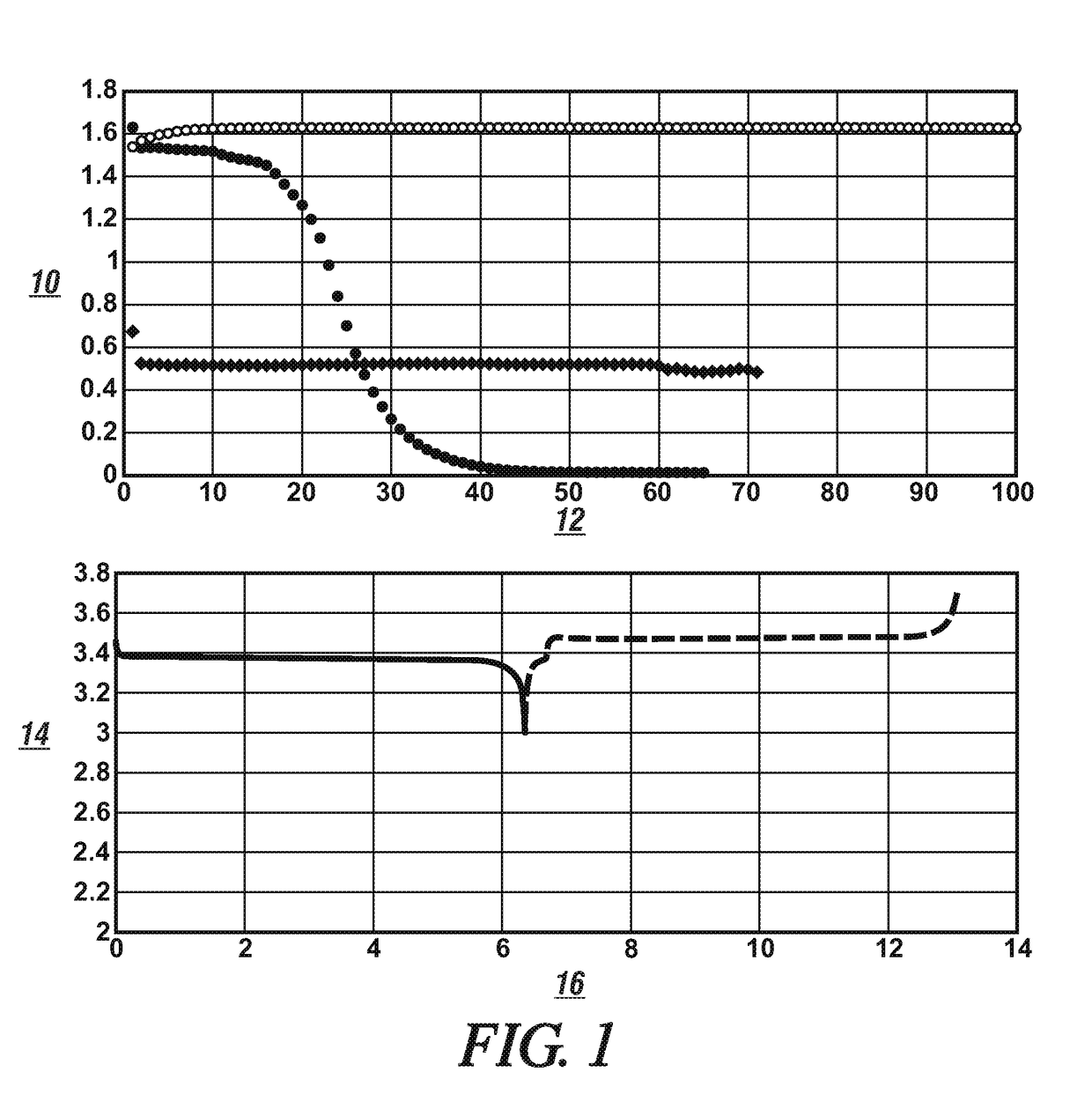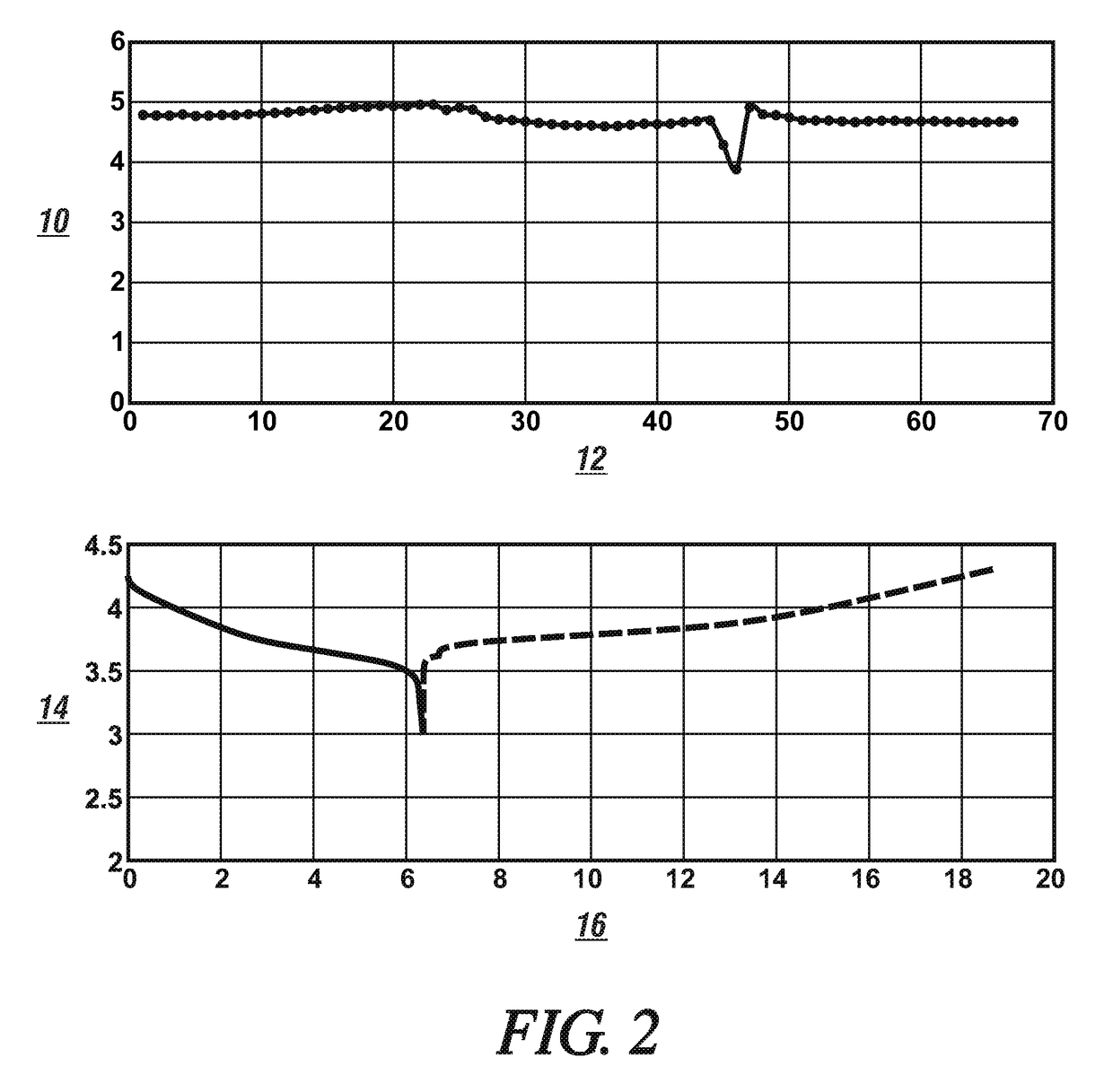Fluorinated ether as electrolyte co-solvent for lithium metal based anode
a lithium metal and co-solvent technology, applied in the manufacture of final products, cell components, electrochemical generators, etc., can solve the problems of affecting the cell's function and reducing the efficiency of the cell, and achieve the effect of improving the cycling efficiency and durability of the cell
- Summary
- Abstract
- Description
- Claims
- Application Information
AI Technical Summary
Benefits of technology
Problems solved by technology
Method used
Image
Examples
Embodiment Construction
[0022]A group of cells formed of lithium metal anodes, one of two different cathode materials; lithium iron phosphate (LiFePO4) and lithium nickel manganese cobalt oxide (NMC111); and different solutions of a lithium electrolyte salt in different non-aqueous liquid solvents were prepared and tested with respect to their respective direct current voltages during a discharge cycle and a charge cycle, cell capacities (mAh), and cycle lives. The data obtained from the testing of these cells are presented in FIGS. 1 and 2.
[0023]The cell test data presented in FIG. 1 was obtained from a cell assembled using an anode formed of a 20 micrometer thick layer of metallic lithium formed on a 10 μm thick copper foil formed of substantially pure copper with high electrical conductivity. The cell contained a cathode formed of a porous layer, 60 μm thick, of particles of lithium iron phosphate which were resin-bonded to an aluminum current collector foil (20 μm). One of three different electrolyte s...
PUM
| Property | Measurement | Unit |
|---|---|---|
| voltage | aaaaa | aaaaa |
| thickness | aaaaa | aaaaa |
| thickness | aaaaa | aaaaa |
Abstract
Description
Claims
Application Information
 Login to View More
Login to View More - R&D
- Intellectual Property
- Life Sciences
- Materials
- Tech Scout
- Unparalleled Data Quality
- Higher Quality Content
- 60% Fewer Hallucinations
Browse by: Latest US Patents, China's latest patents, Technical Efficacy Thesaurus, Application Domain, Technology Topic, Popular Technical Reports.
© 2025 PatSnap. All rights reserved.Legal|Privacy policy|Modern Slavery Act Transparency Statement|Sitemap|About US| Contact US: help@patsnap.com


